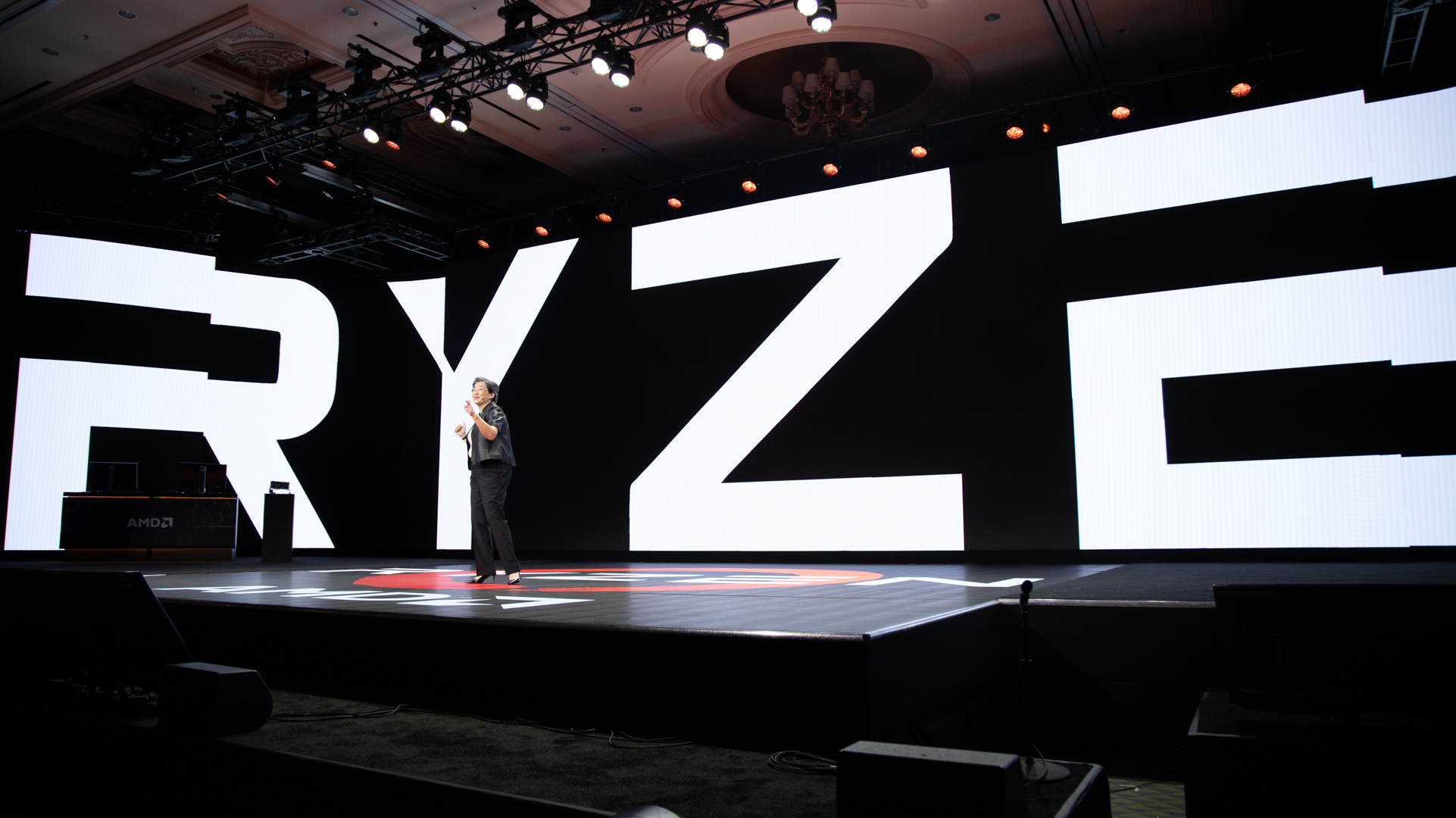Ryzen 3000 CPUs don't hit top speeds on all cores - is AMD's rush to 7nm to blame?
Mix of fast and slow cores

Sign up for breaking news, reviews, opinion, top tech deals, and more.
You are now subscribed
Your newsletter sign-up was successful
The AMD Ryzen 3000 series of processors have been getting a lot of good press recently (we were particularly impressed by the AMD Ryzen 9 3900X), however some particularly tech-savvy users have discovered that not all the cores on the processors hit their advertised boost frequencies – and it's left many wondering if AMD's rush to get 7 nanometer chips to market could be to blame.
Pretty much all modern processors come with two advertised clock speeds: a base clock, which is the minimum frequency the processor will run at, and a boost clock, which is the fastest speed the processor will run at depending on tasks and certain conditions, such as heat.
- AMD vs Intel: which processors are better?
- AMD Ryzen processors are now outselling Intel in Asia
- Intel Ice Lake release date, news and features
This gives us a decent idea of the kind of performance we can expect from a processor, but if the Ryzen 3000 series of multi-core processors only reach those boost speeds on some of the cores, the picture becomes more complicated.
What’s going on?
Tom’s Hardware has taken an in-depth look at these claims, and found that on its Ryzen 5 3600X chip, only one core hit the advertised 4.4GHz boost clock.
The website contacted AMD, which confirmed that some Ryzen 3000 cores are faster than others – with the faster ones known as ‘Ryzen Master’ – resulting in a mix of fast and slow cores.
Tom’s Hardware’s tests backed this up, and the website found that there was around a 75MHz – 100MHz difference between the fastest and slowest cores. In the grand scheme of things this isn’t huge, but it does show a potential change in AMD’s binning process for the processors – which is a way of making sure the best-performing components get to market.
Previous generations of AMD Ryzen processors reached boost frequencies on all cores, while Intel also claims its processors reach their turbo frequencies on all its cores.
Sign up for breaking news, reviews, opinion, top tech deals, and more.
PCs running the latest version of Windows 10 appear better at using the fast and slow cores thanks to the improved Windows 10 scheduler and latest drivers, but people using older versions of Windows may see worse performance.
Tom’s Hardware also thinks that these slower cores could be why the Ryzen 3000 processors aren’t particularly good at overclocking – as slower cores could struggle to maintain higher frequencies, lowering the overall overclocking potential of the chip.
So, what does this mean? It could be a result of AMD changing its binning process to be better optimized. AMD has beaten Intel, its chief competitor, to the punch by releasing 7 nanometer chips – Intel has admitted it won’t reach 7nm until 2021 – but could this rush to release 7nm before Intel have resulted in compromises being made?
It certainly gives weight to Intel’s argument that its 10nm process – which is out later this year – will be comparable to AMD’s 7nm process due to Intel holding itself “to a stricter standard than others.”
However, while on paper this sounds disappointing from AMD, most day-to-day users won’t see an impact. However, when Intel does release its new chips, AMD’s Ryzen 3000 processors could once again be on the back foot.
- Best processors 2019: the best CPUs for your PC

Matt is TechRadar's Managing Editor for Core Tech, looking after computing and mobile technology. Having written for a number of publications such as PC Plus, PC Format, T3 and Linux Format, there's no aspect of technology that Matt isn't passionate about, especially computing and PC gaming. He’s personally reviewed and used most of the laptops in our best laptops guide - and since joining TechRadar in 2014, he's reviewed over 250 laptops and computing accessories personally.